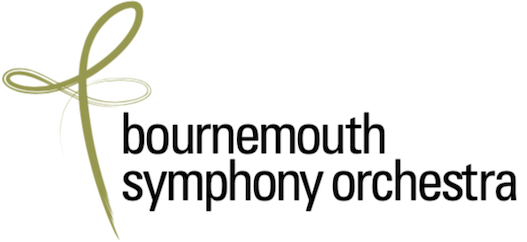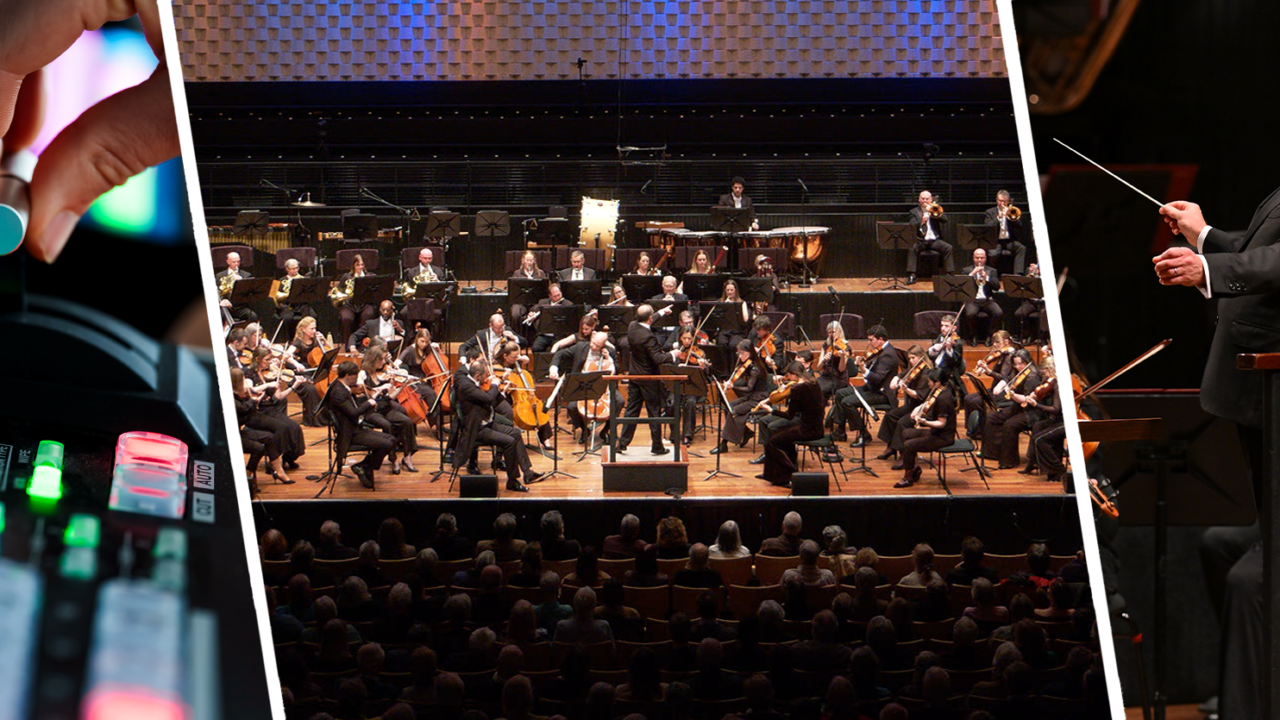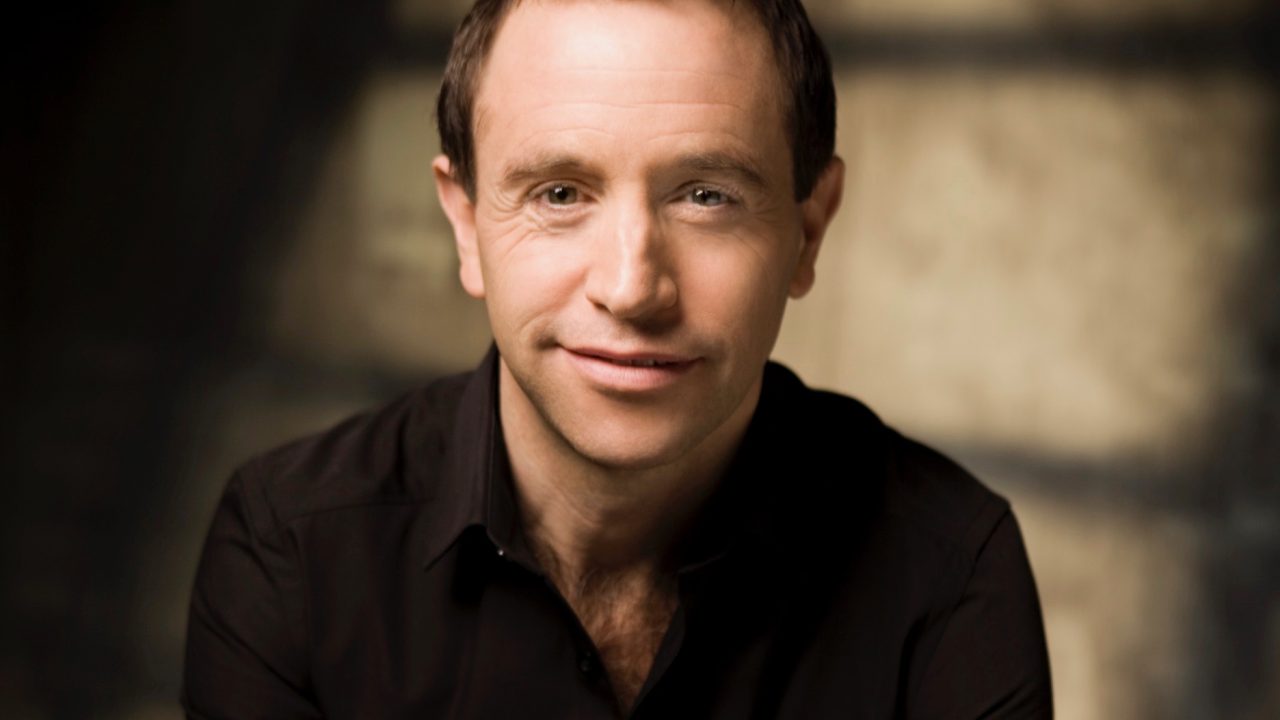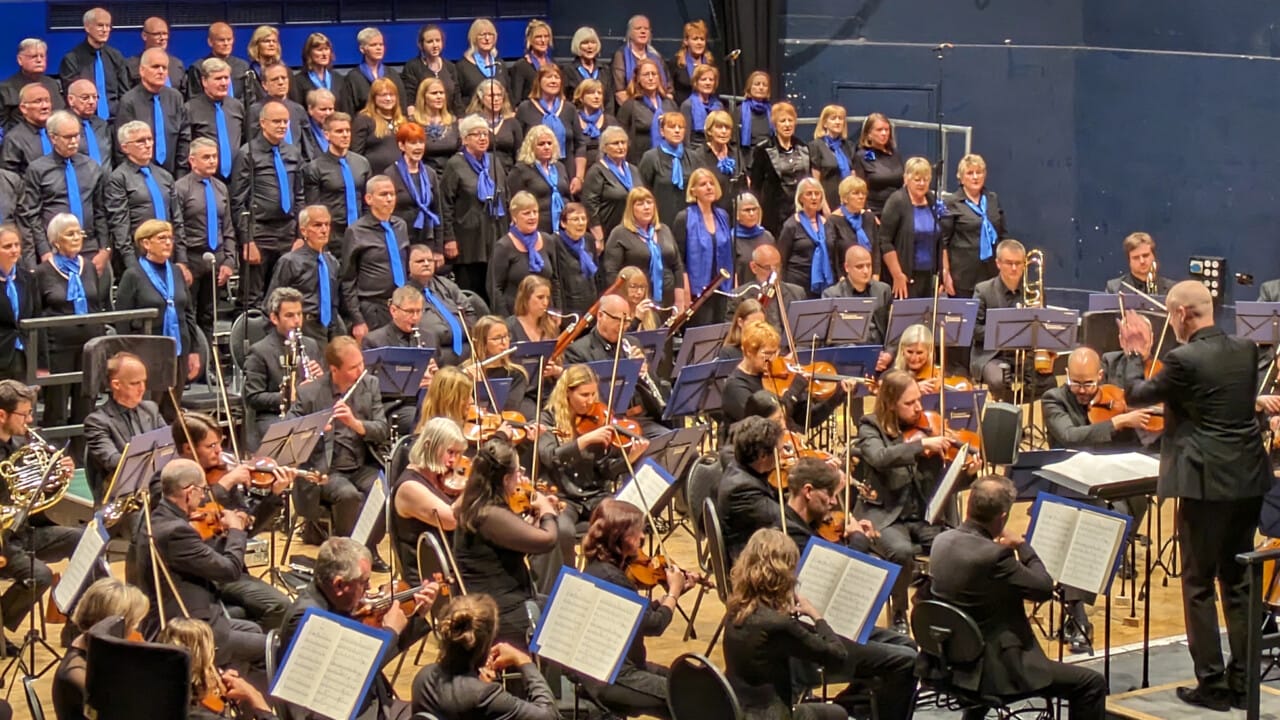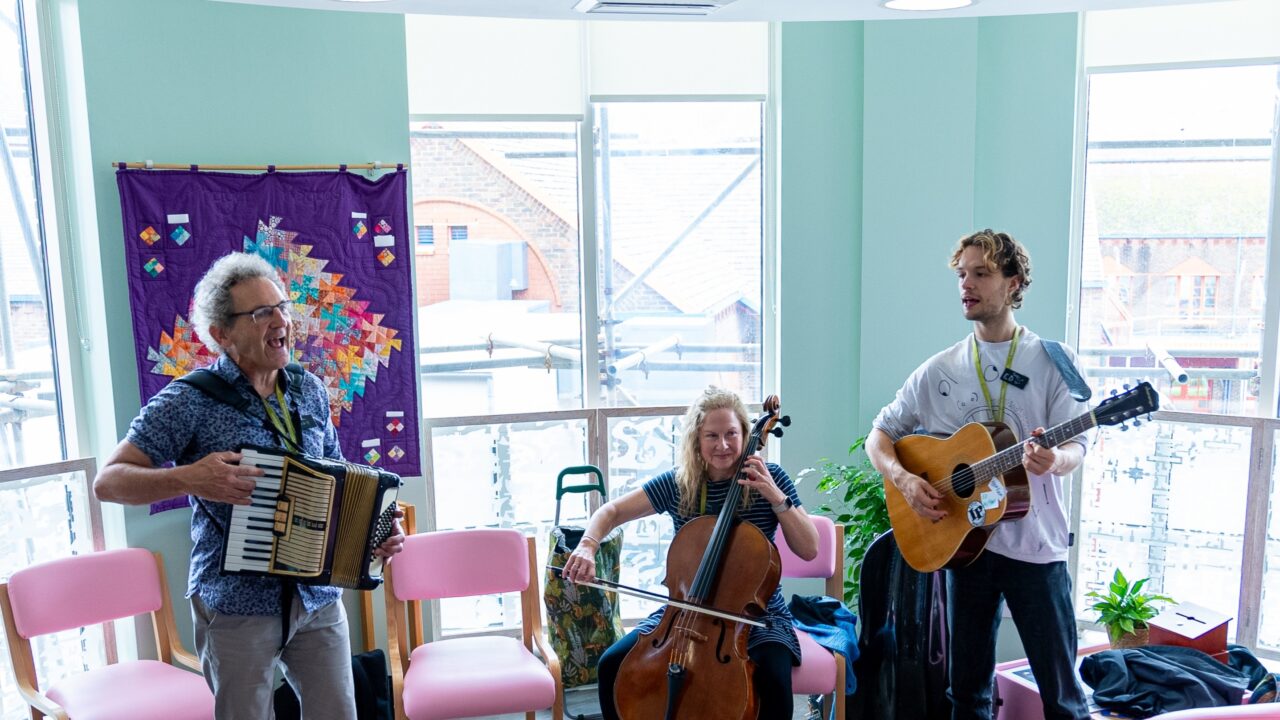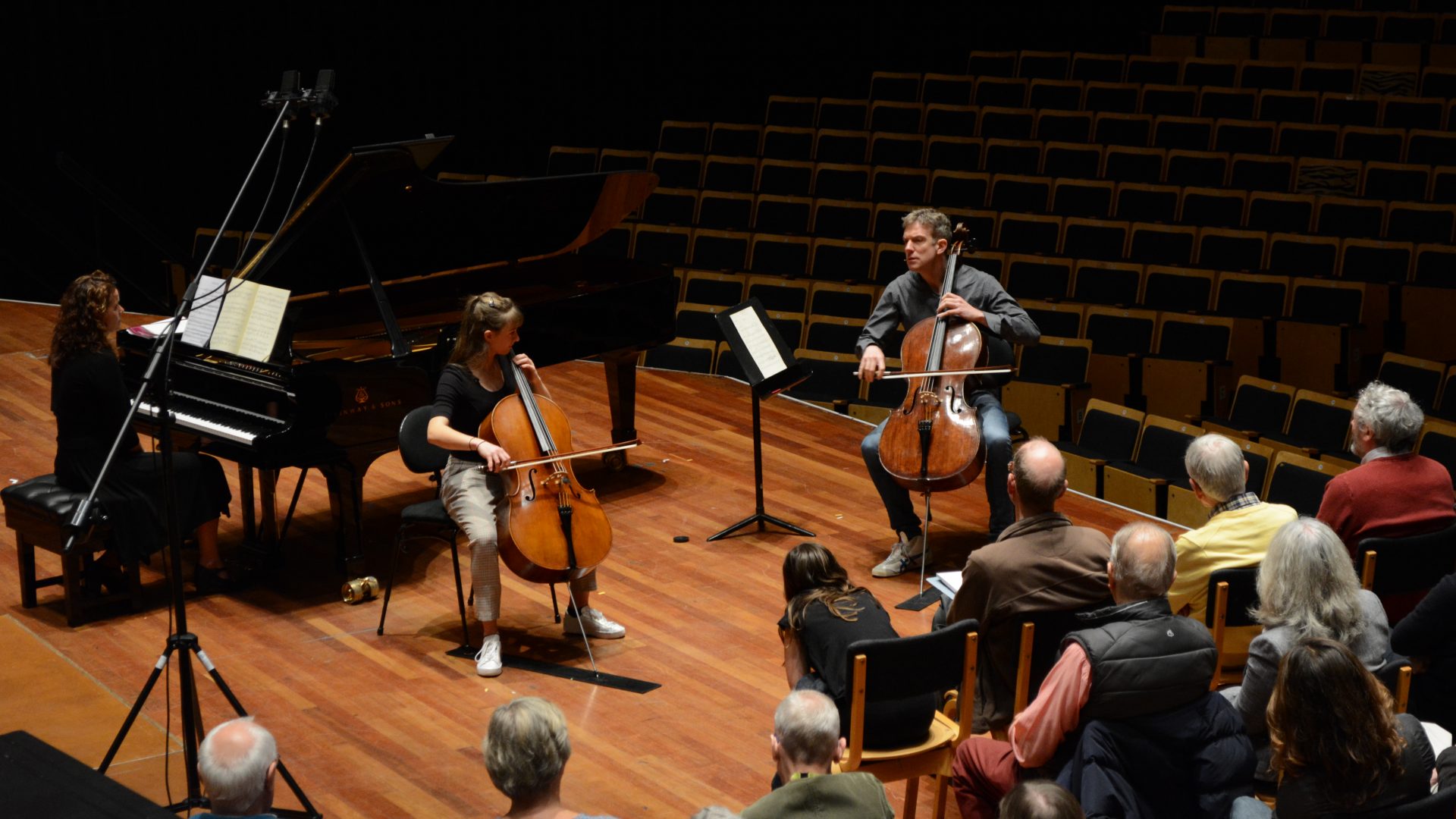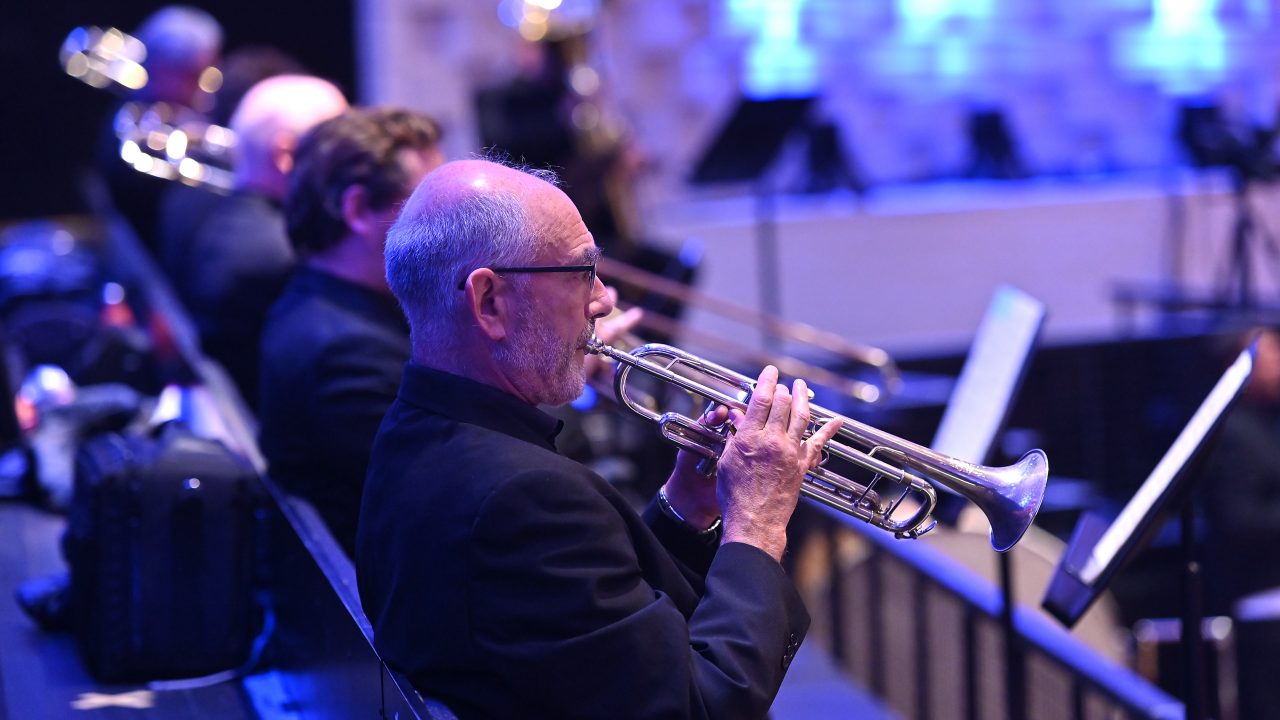The day began at the usual 6am but instead of heading to the train station, we found ourselves at the BBC Radio Solent studio in Dorchester. By 7:30am I had met with Dougie Scarfe, CEO of the BSO and Tamsin Eddey, Communications Officer for the BSO, and was surrounded by soundproofed studios and microphones.
BBC Radio Solent
7:50am rolled around with Dougie and I attached to headphones and faced with a million screens, buttons and switches – very daunting to a mere cellist like myself! Playing to an audience you can physically see is a COMPLETELY different experience compared to playing on a spinny office chair in front of not only Dougie and Johannes down the phone but the invisible audience of listeners – something I never thought I would’ve done by 8am on a Wednesday morning!
After a quick change and nibble at home, we headed out to Poole Lighthouse, a venue I’m lucky to be very familiar with having played on the stage over 20 times with the Wessex Youth Orchestra. We were shown to our (very glam😉) dressing room where I soon met with the other two cellists to be performing in the masterclasses – Tiger and Hugo. Both are great people and musicians, all with our own stories and experiences to share. After this, I had a quick run through with the incredible accompanist, Samantha Carrasco.
Livestream on YouTube
At 10:30 I had (another!) microphone attached to me and took my place on the stage, this time as a soloist not an orchestral player! After playing through the beautiful first movement of the Elgar Cello Concerto to Johannes and the audience of family and BSO associates including Roger Preston, long-serving BSO cellist and ex co-principal, we got straight to work. I went into the masterclass with an open mind to new ideas and interpretations that I could take on board to make the piece into something original, despite its frequent performance in the cello rep!
Johannes informed not only me but the audience on his extensive knowledge of original editions, for example the infamous opening melody that many cellists and “original editions” take to be played in the one way that I did, was an addition by a cellist, not Elgar himself. Having taken information like this on board I have now critically thought about the many options now available. As a musician I think it is key to have more than one opinion on how something could or should be played before justifying a decision on how you, as the performer, should translate dots on a page into something magical that has the abilities to move and inspire people.
After my own masterclass, I watched the other two cellists each with such different pieces and talent to offer. Information Johannes provided them with was also hugely beneficial for me in the rest of my music making, outside the piece I performed that day.
All there is to say now is a tremendous THANK YOU to the extremely wonderful BSO and the whole team for not only putting on this exceptional opportunity for us but the full experience and professionalism of the day 😊
